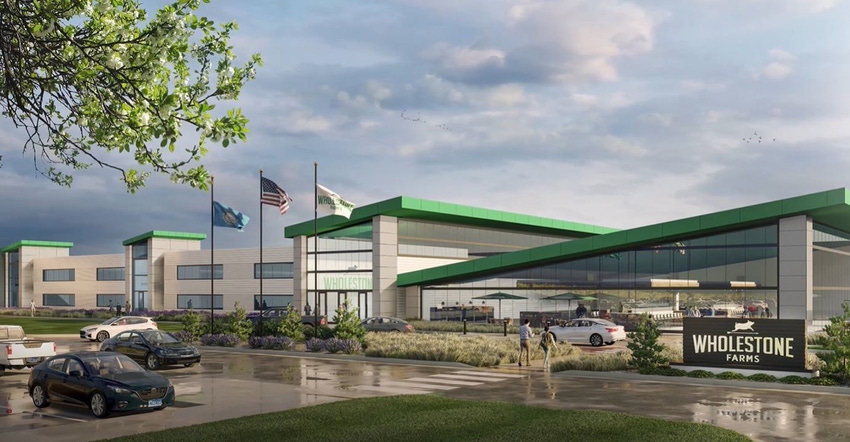Sioux Falls voters will decide the fate of the proposed slaughterhouse zoning ordinance on Nov. 8.
September 2, 2022

Wholestone Farms this week gained the backing of South Dakota Governor Kristi Noem and the Greater Sioux Falls Chamber of Commerce regarding an upcoming vote on a slaughterhouse zoning ordinance. In an interview with radio host Bill Zortman, Noem said a "ballot measure like this puts every single project we do in South Dakota in jeopardy in the future," while the Chamber of Commerce issued an official position on the ballot issue, urging a "no" vote.
In September of 2021, Wholestone Farms announced their intent to build a $500 million-plus pork processing plant on a 170-acre parcel of land in northeast Sioux Falls. Soon after the announcement, an opposition group emerged seeking to halt construction of the plant. Smart Growth Sioux Falls objected to building a slaughterhouse inside the city limits. The group gathered the required signatures to have the voters of Sioux Falls weigh in on whether the city should prohibit future slaughterhouses in Sioux Falls city limits.
The proposed ordinance does not apply to existing slaughterhouses, such as Smithfield Foods, within the city limits, or expansion or alterations made of said facilities.
Sioux Falls voters will decide the fate of the proposed slaughterhouse zoning ordinance on Nov. 8.
Greater Sioux Falls Chamber of Commerce says it opposes the slaughterhouse zoning ordinance for the following reasons:
Primarily, this ordinance would change the rules in the middle of the game for a business that has followed all the rules set forth in city ordinance. When a small group of citizens can prohibit a proposed development by submitting a question to the voters to block said business, serious concerns arise. It creates uncertainty for any future business who may consider locating in Sioux Falls. In short, this is bad for the economic future of our city.
There was no opposition to rezoning the land. Wholestone purchased the land three years after the site was rezoned. In 2017, the landowner submitted an application, which was approved by the city council, requesting the land be rezoned from agriculture to an I-2 Heavy Industrial District. The rezone had two hearings before the city council. There was no public opposition to the rezones in 2017.
The people of Sioux Falls approved the city's current zoning ordinances by 65% in April of 2014. The Shape Sioux Falls zoning ordinance was developed by the city's planning and zoning team based on input from a survey of 1,500 citizens, followed by approximately 60 public meetings over a three-year period. It was referred to a public vote and was approved by 65% in April of 2014. It became effective that same month.
In her radio interview Tuesday, Noem said the ballot issue was demonstrating to other firms in South Dakota that even if they plan long-term and meet all requirements, "at the last minute one person can get mad, do a ballot petition and end my business and my investment."
In July, Wholestone Farms announced plans to open a custom butcher shop at the location planned for its future pork processing plant. The butcher shop will allow customers to select a Wholestone farmer and order a pig turned into Wholestone-branded products.
About the Author(s)
You May Also Like



